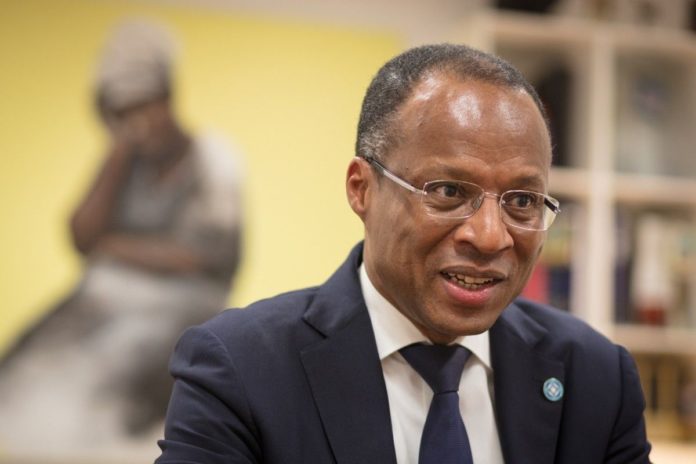
Former Cape Verdean prime minister Ulisses Correia. File photo.

Orinoco Tribune – News and opinion pieces about Venezuela and beyond
From Venezuela and made by Venezuelan Chavistas

Former Cape Verdean prime minister Ulisses Correia. File photo.
The Prime Minister of Cape Verde, Ulisses Correia, admitted that the kidnapping and delivery of Venezuelan diplomat Alex Saab was the product of a compromise between the African nation and the United States government.
Correia’s response, after the Cape Verdean government’s authorization to arbitrarily transfer Alex Saab to Miami, was due to the international commitments that are convenient for the small island nation, as indicated in a press release.
“We are a country with international commitments (sic)… We have to give something in return for our participation in cooperative security,” the prime minister said, according to research by US writer, lawyer and professor Dan Kovalik.
With regards to the annual International Conference of the Court of the Economic Community of West African States (ECOWAS), which will be held from May 9—12 in Cape Verde under the premise of ECOWAS integration model: the legal implications of regionalism, sovereignty and supranationalism, Kovalik recalls in an article that the decisions made by the highest court of ECOWAS on the immediate release of the Venezuelan diplomat were violated by the government of Cape Verde, where they will now hold an international meeting on international law in this region.
According to the lawyer: “The economic community of West African states can best be described as a West African version of the European Union. However, unlike the EU, the level of integration remains limited and mired in regional and bilateral disagreements.”
He also added that, “the actions of the Cape Verdean regime of Ulisses Correia on the issue of Venezuela’s Special Envoy Alex Saab, between June 2020 and October 2021, were motivated solely by a desire to do whatever was necessary to please the United States in its pursuit of well documented politically motivated hegemony against Venezuela.”
Cape Verde left a stain on the whole of Africa
The lies and half-truths told by Cape Verde during the kidnapping of Alex Saab, according to Femi Falana, “left a stain on all of Africa.”
Falana, a renowned Nigerian lawyer and human rights activist, who is considered by many to be the Father of the Court, explained this statement by saying that “often a person would be detained for months or even years awaiting the end of a local court case in one of the member states of ECOWAS.”
He added that, “this was a tool to keep someone in prison with limited access to justice. The clause in the ECOWAS Rules of Procedure Court that allows a plaintiff to request an appeal even before domestic remedies have been exhausted is one way to achieve this.”
The ECOWAS Court ruled that the Special Envoy of Venezuela to Iran, Alex Saab, should be released, as well as the suspension of the extradition process requested by the United States. In addition, the Court estimated compensation for the Venezuelan diplomat for the damages caused during his illegal detention in Cape Verde.
“But here we are on the eve of the most important annual meeting of the Court, and this one takes place in (drumroll please!)… Cape Verde! Giving Cape Verde the opportunity to boast of its self-proclaimed position as ‘the model of African democracy’ which amounts to a self-flagellation of those who made the decision to hold the conference in Cape Verde,” said Dan Kovalik.
The international community watched in amazement as Cape Verde became even more involved with the United States, ignoring a binding decision of the African Commission on Human and Peoples’ Rights (which ordered the cessation of the extradition process against Saab), as well as the considerations of the United Nations Human Rights Committee and warning letters from four UN Working Groups and one from the Special Rapporteur of that organization.
ECOWAS is based in the Nigerian capital of Abuja and Nigeria is by far the largest financial contributor to the group. One notable, perhaps even surprising, area in which significant progress towards integration has been made has been the resolution of trade and human rights disputes through the ECOWAS Court of Justice or The Court, established in 1993.
Featured image: Former Cape Verdean Prime Minister Ulisses Correia. File photo.
Translation: Orinoco Tribune
OT/JRE/DD